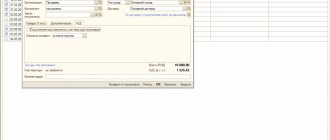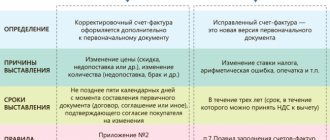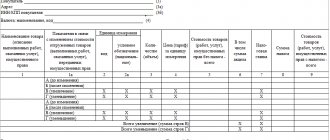Home / Taxes / What is VAT and when does it increase to 20 percent? / VAT object
Back
Published: December 28, 2017
Reading time: 4 min
0
190
The imposition of value added tax on the provision of transport services is regulated by the Tax Code of the Russian Federation. The taxation procedure depends on the type of services provided, their geography and the specific conditions prescribed by law that determine the specific rate for different types of activities.
- VAT rate 0%
- VAT rate 10%
- VAT rate 18%
- Exemption from VAT
Transport expedition contract
Delivery of goods to the buyer can be done either by the supplier itself or with the involvement of a third party. If necessary, agreements are concluded with freight forwarding companies, which are of an intermediary nature. With their help, if vehicles are available, cargo is delivered to its final destination.
Under the terms of the drawn up contract for the carriage of goods, the freight forwarder undertakes to perform work related to the transportation of goods and the provision of transport services at the expense of the client. At the same time, the safety of the cargo must be ensured, its dispatch and receipt on site must be guaranteed. As an addition, services are offered for the preparation of documents for international transportation, customs operations, payment of relevant duties, receipt of goods at designated points and other procedures.
VAT on reimbursement of transportation costs: Ministry of Finance clarifies!
Reimbursement of transportation costs incurred by the supplier in favor of the buyer, and not included in the price of the goods, has always given rise to many tax disputes and was associated with tax risks. The fact is that the object of VAT taxation is the sale of goods (work, services) on the territory of Russia (clause 1, clause 1, article 146 of the Tax Code of the Russian Federation).
In turn, the sale of goods, work or services is recognized as the transfer on a paid basis of ownership of goods, the results of work performed by one person for another person, the provision of services for a fee by one person to another person (clause 1 of Article 39 of the Tax Code of the Russian Federation).
It is reasonable to assume that since the supplier does not independently provide transport services to the buyer, there is no object of VAT taxation in this case. Therefore, no tax is charged. Considering that the object of VAT taxation does not arise, the supplier has no right to accept input VAT presented by the transport company as a tax deduction (clause 1, clause 2, article 171 of the Tax Code of the Russian Federation).
The buyer will also not be able to deduct VAT, despite paying transportation costs. After all, he will not have an invoice for these services issued in his name by the seller.
Thus, reimbursement of costs is not associated with the transfer of ownership of any goods, work or services. Money received by the supplier as reimbursement of expenses cannot be recognized as revenue, since they do not carry economic benefits, but are of a compensatory nature and are charged in the amount of actual costs.
Everything seemed obvious. However, the explanations of the financial department about the calculation of VAT by the contractor (seller) when compensating him for any expenses incurred under the contract are quite contradictory.
Thus, in their numerous letters, financiers note that in the case of compensation for utility expenses by the tenant to the landlord, the latter does not have an object of taxation for the above reasons (there is no object of taxation) (letters of the Ministry of Finance of Russia dated May 14, 2008 N 03-03-06/2/51, dated 17.09.2009 N 03-07-11/232).
At the same time, the Ministry of Finance believes that when the performing organization receives from the customer services (works) reimbursement of the cost of travel expenses for the travel of employees to the place of their provision (performance), VAT should be charged.
The basis is subparagraph 2 of paragraph 1 of Article 162 of the Tax Code of the Russian Federation. That is, officials consider the funds received by the contractor as related to payment for work (services) (letters from the Ministry of Finance of Russia dated October 14, 2009 N 03-07-11/253, dated March 2, 2010 N 03-07-11/37, dated February 26, 2010 N 03-07-11/37).
Similar conclusions are contained in the department’s letter dated August 15, 2012 N 03-07-11/300. It is recommended that the organization supplying equipment and installing it include in the VAT tax base the amount of reimbursement by the buyer for travel, transportation and insurance expenses that are not included in the contract price and incurred by the seller in connection with the execution of the contract.
Since in these cases VAT is charged, the amounts of tax paid on business trip expenses, etc. are subject to tax deduction from the supplier of goods (works, services).
What about the buyer? The fact is that the recipient of funds associated with payment for goods (performance of work, provision of services), property rights, issues an invoice in one copy, which is registered in the sales book (clause 18 of the Rules for maintaining the sales book used in settlements VAT approved by Decree of the Government of Russia dated December 26, 2011 N 1137).
That is, the seller will charge VAT for payment to the budget, but will not issue an invoice to the buyer for the amount of reimbursed expenses. Accordingly, the latter will not be able to accept VAT as a tax deduction.
And finally, another letter from the Ministry of Finance of Russia dated August 15, 2012 N 03-07-11/299 on the application of VAT deductions and issuing invoices for transport costs reimbursed by the buyer of goods to their seller deserves attention.
It follows from it that the seller does not provide services to the buyer and the cost of transporting the goods does not need to be indicated in the invoice issued by him for shipped goods. It is curious that for the first time officials are focusing on the possibility of processing reimbursement of delivery costs through an intermediary transaction. Previously, this option for formalizing relations was found only in the explanations of experts.
That is, the supplier, by organizing the delivery of goods to the buyer’s warehouse, actually provides him with agency services. In such a situation, in addition to the direct delivery of goods, the supplier is contractually obligated to conclude an agreement with the transport organization in the interests of the buyer. In other words, the supplier is given the responsibility of the buyer's agent in relations with the carrier.
But keep in mind - as a general rule, the agent receives remuneration for intermediary services (Article 1006 of the Civil Code of the Russian Federation).
If the amount of the agency fee is not specified in the contract, it is paid at the price charged for a similar service. In practice, it is not easy to determine such a price, so it is better to stipulate a specific amount in the contract. The remuneration is subject to VAT and income tax of the agent (seller).
The agent is obliged to submit to the principal (in our case, the buyer) a report on the execution of the order (Article 1008 of the Civil Code of the Russian Federation). It must be accompanied by copies of invoices issued by the carrier to the agent. These documents confirm the expenses subject to compensation.
In this case, the agent has the right to reissue invoices for transportation costs to the buyer (principal) in the manner prescribed for intermediary relations (clause 1 of the Rules for filling out an invoice used in VAT calculations approved by Decree of the Government of Russia dated December 26, 2011 N 1137, letters of the Ministry of Finance of Russia dated 03/02/2012 N 03-07-09/16, dated 07/27/2012 N 03-07-09/92). Based on the invoices received from the seller, the buyer will submit VAT for tax deduction.
It is obvious that reimbursement of transportation costs, provided for as a separate item in the supply contract, will cause inconvenience to both the seller of the goods and its buyer. Therefore, it is advisable for the parties to include the cost of delivery in the price of the goods.
Calculating VAT from the supplier and tax deduction from the buyer in this case will not be particularly difficult.
Since transport costs are included in the price of the goods, the seller charges VAT on the entire cost determined by the contract. The invoice indicates only one item - the name of the product (transport service is not highlighted as a separate line). VAT presented by a transport organization is accepted for tax deduction on a general basis (clause 2 of Article 171, clause 1 of Article 172 of the Tax Code of the Russian Federation).
In turn, the buyer receives the goods to the warehouse at the actual cost (the contract price formed taking into account transportation costs) on the basis of the invoice. He accepts the VAT submitted by the supplier for tax deduction on the date of receipt of the goods in the presence of a primary document and an invoice.
So, when concluding an agreement, the parties need to carefully determine the procedure for reimbursing the seller for the cost of delivering the goods to the buyer.
Transport services
The services offered by transport companies can be varied. Depends on the conditions of cargo delivery, customer wishes and other factors. The following services can be provided:
- Participation in negotiations. Owners of transport companies can, along with customers, develop timing and routes for cargo delivery.
- Paperwork. This includes shipping documents, packaging of packages, execution of acts necessary in the process of work confirming surplus, shortage or damage to goods, presentation of documentation for export and loading.
- Import and export of goods from warehouses and storage areas to the territory of the consignee.
- Loading and unloading works, warehouse services. Loading and unloading goods from storage areas, sorting, picking, packaging, packing into containers and other containers, checking availability, picking, plating, labeling, repairing containers and all kinds of packaging.
- Information services - transmission of dispatch notifications, movement tracking, information about border crossings and delivery to ports.
- Preparation of additional equipment necessary for transportation. Checking equipment for further work, cleaning after unloading work, preparing and providing sealing devices.
- Insurance services for transported goods (drawing out contracts, receiving insurance payments, paying required insurance premiums).
- Financial services consisting of payment of expenses arising during the delivery of goods.
- Customs clearance procedures if necessary to cross borders. Control over the preparation of customs declarations and other related documents, transfer of customs duties.
- Other services arising depending on the specifics of the goods and the conditions of movement.
Intermediary activities of the forwarder
When a freight forwarder engages third parties to perform work, such work is of an intermediary nature. Therefore, the work of the forwarder in such cases is regulated by the rules on commission and agency relations. Freight forwarders have the right to issue clients the necessary documents, including invoices with an allocated VAT amount.
In order to confirm the intermediary nature of forwarding activities, the following conditions must be met:
- Drawing up an agreement that indicates on whose behalf subsequent contracts for the transportation of goods are concluded - on behalf of the client himself or the forwarder. Separately, it is worth specifying the expected amount of remuneration for the services offered. Independently taking on additional functions without notifying the client may not be considered an intermediary activity.
- In addition to the contract, it is necessary to have forwarding documents, such as: an order to the forwarder indicating the fulfillment of conditions and work within the framework of the transportation of goods, a receipt confirming the fact of acceptance and transfer of goods, warehouse records for the shipment of goods.
Waybill
A bill of lading (BW) is issued upon concluding a contract for the carriage of goods. This is an independent transportation document, the purpose of which is to confirm the fact of concluding a contract. The document is required. Under the contract of carriage, it is, as a rule, drawn up by the shipper (clause 2 of article 785 of the Civil Code of the Russian Federation, part 1 of article 8 of the Federal Law of November 8, 2007 No. 259-FZ).
The TN contains information about the consignor, consignee, the name of the cargo and its declared value, accompanying documents, and conditions of transportation.
Thus, the technical specification is drawn up as part of the contract of carriage. She confirms:
- the very existence of legal relations between the sender of the goods and the carrier;
- regulates the relations of the parties under the contract for the carriage of goods;
- determines specific conditions of transportation.
By the way, from January 1, 2021, the rules for transporting goods by road have changed (Government Decree No. 2200 of December 21, 2021), and a new form of consignment note is being applied.
VAT on transport services: for intermediary activities
When conducting intermediary activities, freight forwarders are required to keep a log of received and issued invoices if they are recognized as VAT payers. The tax base in such cases is determined as the amount of income from the remuneration received. Forwarding transport services when transporting goods across the country are taxed at a standard rate of 18%.
If forwarders are not recognized as tax payers or have an exemption from its assessment, they also maintain a Journal of received and issued documents, which records income from activities.
Read more about tax accounting for VAT in the article:
When preparing invoices, intermediary organizations indicate the costs of paying for services to third parties. These documents are not registered in the sales book, since there is no obligation to calculate tax on the cost of services received by the forwarder.
Example . The transport company, under the terms of the concluded contract for forwarding services, received the following amounts from the client: 2,500 rubles for processing documents for removal from the storage warehouse. The amount of 38,000 rubles is provided as a reward for transporting goods.
Chaika LLC issued an invoice for its services to the client in the amount of 38,000 rubles, including VAT 18% - 5,796.61 rubles. Transferred funds in the amount of 2,500 rubles for paperwork during the delivery process are not considered as remuneration for the work done and are not revenue of the transport company.
Cargo transportation with or without VAT for individual entrepreneurs and LLCs - the main differences
The tax is indirect; it is calculated by the seller when selling goods to the buyer or when providing services. In addition to the cost of the goods sold, the seller charges a fee, which is calculated according to the appropriate tariff. Payers of the fee are organizations and individual entrepreneurs. A popular question is how the cost of cargo transportation including VAT is calculated.
The procedure for assessing VAT on transport services
VAT on freight transportation should be paid based on who provides such services and where they are produced. According to the law, several options for tax rates are provided, and in some cases this tax is not required to be paid at all, or a zero tariff is applied.
According to Article 164 of the Tax Code, in some cases a zero tariff is applied to freight transportation. It is relevant when carrying out international transportation, when transporting oil and natural gas from the Russian Federation or to the territory of the country, as well as when performing transit procedures, transporting passengers from destinations and departures outside the Russian Federation.
Taxed at a zero rate, including suburban transportation in the Russian Federation, some long-distance transportation, as well as domestic air transportation if the point of departure or destination is Crimea or Sevastopol.
To take advantage of the 0% preferential rate for shipments outside the country, the payer needs to provide some documents in advance. The list includes copies of contracts, transport documentation, TD.
This information must be submitted to the fiscal authority within 180 days, which is counted from the time the mark was submitted to customs.
If the payer does not submit documentation in a timely manner, he will be required to contribute VAT to the budget.
Persons carrying out transportation within the country - passenger and baggage - can work with VAT on cargo transportation, which is 10%. In other cases, rates of 20% apply to OSNO.
Thus, according to the norms of the Tax Code of the Russian Federation, different rates may be applied when providing services, as well as exemption from the fee. If the payer applies a zero tariff, you need to prove the legality of its use, otherwise you will have to pay additional VAT at the basic rate.
Tax system for cargo transportation for individual entrepreneurs and LLCs, how to work with VAT
To optimize VAT, different taxation systems are provided that reduce the fiscal burden - simplified tax system, PSN and UTII. The concept of freight transportation implies the delivery and transfer by the carrier of cargo to the specified address under contracts. To run a freight transportation business as an individual entrepreneur or LLC, all you need to do is register and select a mode.
To determine the tax system, you need to take into account the scale of the business, the number of vehicles used, and the amount of revenue. One of the popular taxation systems is the simplified tax system. It provides for payment of income tax at 6% or income minus expenses at a rate of 15%.
The UTII system is used if the number of vehicles is no more than 20. If there are several OKVEDs, separate accounting will be required. There should be no more than 100 hired personnel.
The PSN system is used exclusively by individual entrepreneurs. Before working as an individual entrepreneur with VAT or an organization, you need to carefully analyze the advantages and disadvantages of different systems in order to choose the appropriate option.
It is necessary to take into account such parameters as restrictions on the number of vehicles (they are not on the simplified tax system and PSN), the period of validity (the simplified tax system is without restrictions). It is necessary to take into account the presence of restrictions on the region of operation, number of people, and annual revenue.
Payment for cargo transportation with or without VAT
The VAT rate for individual entrepreneurs (individual entrepreneurs) and organizations can be calculated at rates of 0.10 or 20%. The application of a specific rate depends on what cargo is transported, by what transport, from where, what destination, etc.
For example, international transportation, as well as outside the Russian Federation with landing in Russia, and transit operations may be subject to a zero tariff. The right to apply zero percent must be confirmed by submitting documentation. Sometimes you can refuse to use this tariff. A rate of 20% is used in cases where it is not possible to apply a zero percentage or a tariff of 10%.
To confirm the availability of benefits, you need to submit documents. Their list may vary depending on the type of operation. If international transportation was carried out, a contract for the provision of services and transport documents will be required. If the transportation involved an aircraft with landing in the Russian Federation and subsequent departure, a register of transportation documents is needed.
When performing a transit operation, you need a contract for the provision of services, TD, and shipping documents. If you submit documentation late, you will need to pay a fee of 20%.
Working as an individual entrepreneur with VAT: pros and cons
An entrepreneur has the right to independently establish the optimal taxation regime for his activities. Often individual entrepreneurs use special regimes, for example, simplified taxation system, PSN and UTII, which allow them not to pay value added taxes. However, in some cases, a fee has to be paid, or the individual entrepreneur must work for OSNO, if the use of special regimes is prohibited.
The rate for this payment may vary depending on what transactions are carried out. If an entrepreneur works for OSNO, he must keep a book of purchases and sales. Payments are settled every quarter. A person must file their taxes on time.
There are some pros and cons of working with VAT. Main advantages for individual entrepreneurs:
- Possibility of cooperation with large contractors.
- Possibility of tax deduction.
The main disadvantage of working with this fee on OSNO is the complex calculation. But if you work without this payment, the businessman becomes less competitive, and there is a risk that potential partners will refuse to work together. Entrepreneurs on OSNO are often more thoroughly checked by tax authorities.
What is the procedure for assessing VAT on transport services?
You should first determine at what rate work with VAT is carried out - 0, 10 or 20%. The list of services subject to a 0% rate is specified in the Tax Code and is closed. There is also a list of goods subject to 10% tax.
In other cases, organizations working for OSNO must pay a tax of 20%. If documents confirming the right to use zero percent are not submitted in a timely manner, a fee at the basic tariff is paid.
Source: https://expert-nds.ru/gruzoperevozki-s-nds/








